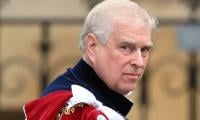UN-ECOSOC Development Cooperation Forum 2021: Imperative to create new global framework for development, says Dr Sania Nishtar
Islamabad: Lessons learnt from Ehsaas are relevant beyond Pakistan's national borders, said SAPM on Poverty Alleviation and Social Safety Division Dr Sania Nishtar while addressing UN-ECOSOC Development Cooperation Forum 2021 as keynote speaker.
Pakistan’s Ambassador to the United Nations, Munir Akram in his capacity as the President of United Nations’ Department for Economic and Social Affairs (UN-ECOSOC) convened the 7th biennial high-level Development Cooperation Forum (DCF).
The DCF is the principal global platform for policy dialogue on development cooperation. The DCF aimed to advance international development cooperation that reduces risk, enables recovery and builds resilience in the COVID-19 period and beyond. The insightful session engaged thought leaders in a discussion of how to reinvigorate development cooperation, rethinking old approaches and debates and moving decisively into the new Decade of Action.
The DCF was open to all Member States and engaged all stakeholders, including civil society, private sector, Parliamentarians, local authorities, international and regional organizations, and development banks. Ambassador Akram opened the event.
The opened session brought together Liu Zhenmin, Under Secretary-General, United Nations Department of Economic and Social Affairs; Professor Sir Michael Marmot, Professor of Epidemiology, University College London and Special Adviser to Director-General of WHO; and Dr. Sania Nishtar. Keynoting the DCF 2021, Dr. Sania said, “The shared experiences of the last year and a half have hurt, challenged and changed us all. As a global community we must now appreciate that COVID-19 is threatening to wipe out the development gains of the last century—it is reversing three decades of gains in poverty eradication.
A whole new generation now risks living in the shadow of poverty unless we take urgent action now.” Continuing, she highlighted that the cost of COVID-19 was not limited to lives lost and morbidity; it was staggering in terms of hunger, children dropping out of school and foregone healthcare—and as always it was women and girls that were disproportionally bearing the brunt of this tragedy. Emphasizing on the need for the new development framework, Dr. Sania stressed that it was a moral imperative for the international system to prioritize the creation of a new “framework for development, post COVID 19”—a framework that could bring together stakeholders to forge the responses needed better mitigate risks and recover from shocks. Further, reflecting on Pakistan’s experience on social protection, she reiterated, “The Ehsaas experience premised on power of data, transparency and rule-based functioning in Pakistan demonstrates that it is possible to rise to the occasion. In the 2020 Development Cooperation Forum Survey, over half of participants worldwide identified lack of quality data as a significant barrier.
In this field, Pakistan can support other countries as we continue to expand and improve our own data driven social protection services.” Concluding her statement, Dr. Sania remarked, “We now have a one in a generation chance to work in solidarity and to build a fairer, healthier, and a more resilient world that ends poverty, inequality and the climate crisis.”
-
 Demi Lovato Leaves Fans Disappointed With Unexpected Announcement
Demi Lovato Leaves Fans Disappointed With Unexpected Announcement -
 Pacers Vs Knicks Overtime Thriller Ends In Heartbreak For New York
Pacers Vs Knicks Overtime Thriller Ends In Heartbreak For New York -
 Who Owns The Ambassador Bridge? New Report Links Owner Matthew Moroun To Trump’s Threat
Who Owns The Ambassador Bridge? New Report Links Owner Matthew Moroun To Trump’s Threat -
 ICE Detention Center Plan Sparks Controversy In Maryland As Lawmakers Push Back
ICE Detention Center Plan Sparks Controversy In Maryland As Lawmakers Push Back -
 Blood Pressure Medication Recalled After Wrong Tablets Found In Bottles
Blood Pressure Medication Recalled After Wrong Tablets Found In Bottles -
 Why Ariana Grande Wants A 'tiny Mouse' To Play Her In Biopic?
Why Ariana Grande Wants A 'tiny Mouse' To Play Her In Biopic? -
 Wind Chill Returns With Brutal Cold As Polar Vortex Stalls Over Canada
Wind Chill Returns With Brutal Cold As Polar Vortex Stalls Over Canada -
 Princess Beatrice, Eugenie ‘do Not Want To Be Seen In Public’ Because Of Dad
Princess Beatrice, Eugenie ‘do Not Want To Be Seen In Public’ Because Of Dad -
 Costco $20 Rule Explained As Employee Pay Climbs Across North America
Costco $20 Rule Explained As Employee Pay Climbs Across North America -
 Strange Incident Happened At Nancy Guthrie's Home On Abduction's 10th Day
Strange Incident Happened At Nancy Guthrie's Home On Abduction's 10th Day -
 Tumbler Ridge School Lockdown Underway As RCMP Investigate School Shooting
Tumbler Ridge School Lockdown Underway As RCMP Investigate School Shooting -
 Royal Family Knows There Can Be ‘no More Glossing’ Of Andrew Downfall
Royal Family Knows There Can Be ‘no More Glossing’ Of Andrew Downfall -
 Britney Spears Quietly Parts Ways With Her Music Catalog: Report
Britney Spears Quietly Parts Ways With Her Music Catalog: Report -
 Princess Diana Bodyguard Suspected ‘she Could Die’: Here’s How
Princess Diana Bodyguard Suspected ‘she Could Die’: Here’s How -
 Teddi Mellencamp Marks Huge Milestone With Emotional Message Amid Cancer
Teddi Mellencamp Marks Huge Milestone With Emotional Message Amid Cancer -
 Shamed Andrew To ‘kiss And Tell’ After Dip In Popularity
Shamed Andrew To ‘kiss And Tell’ After Dip In Popularity



